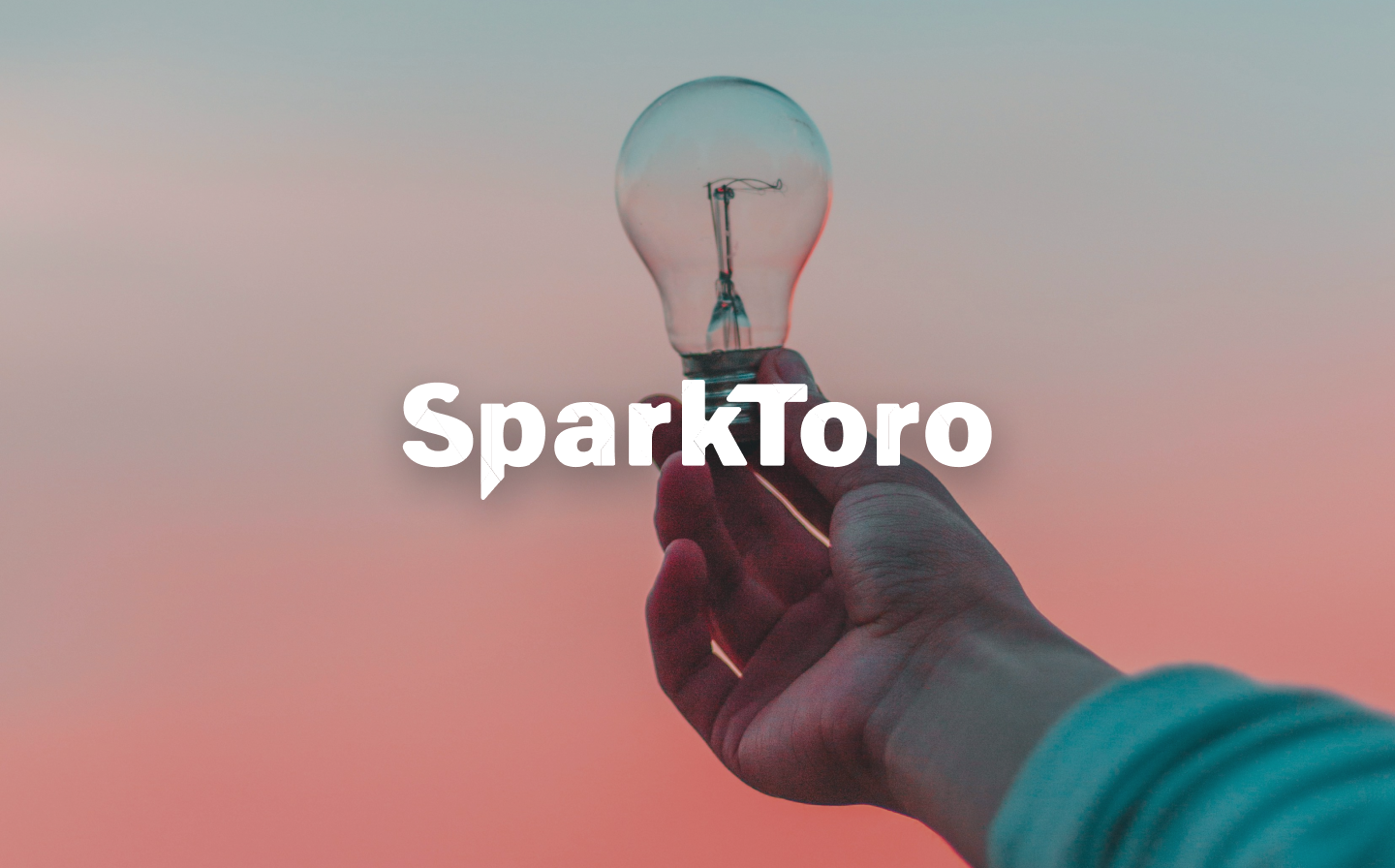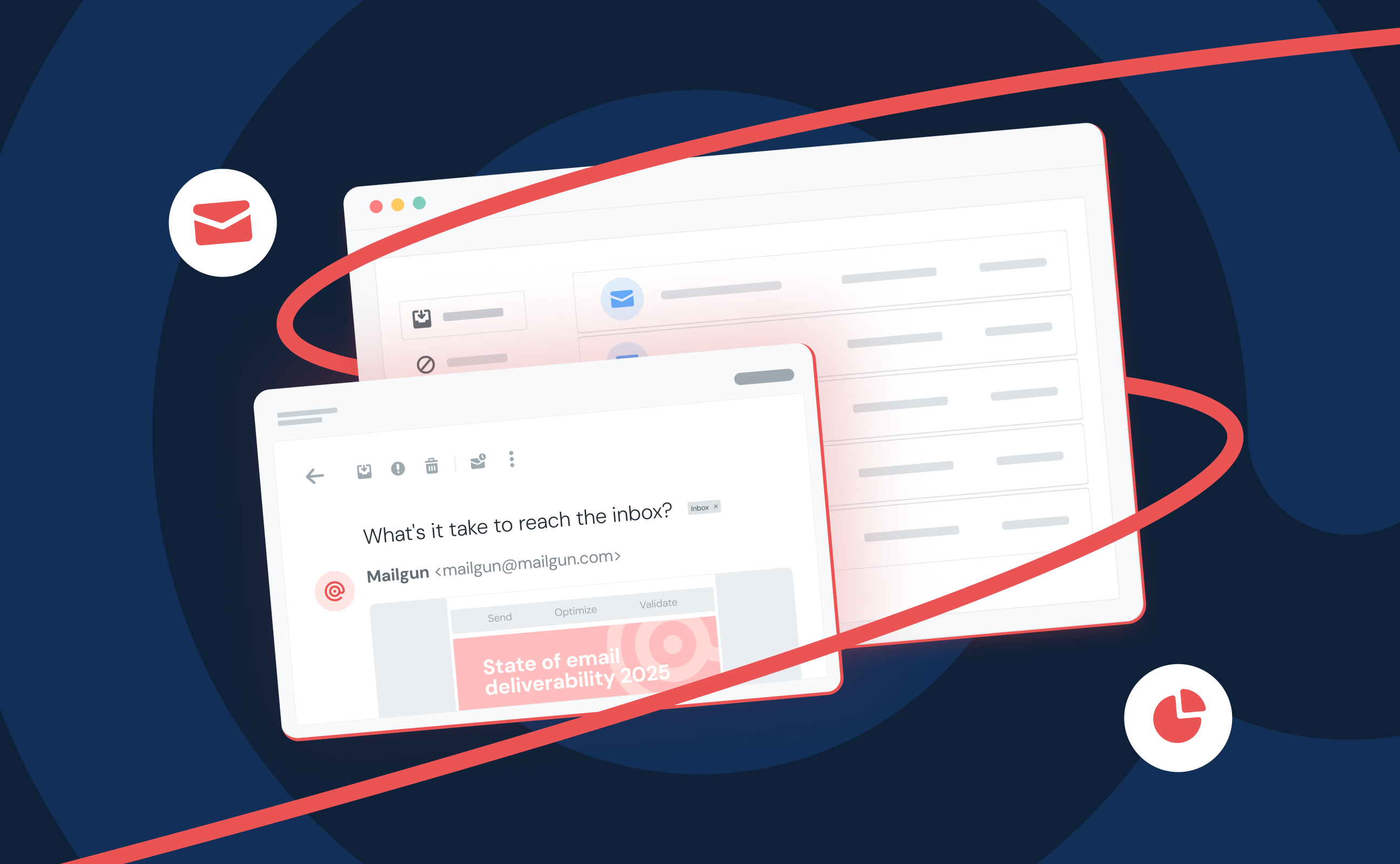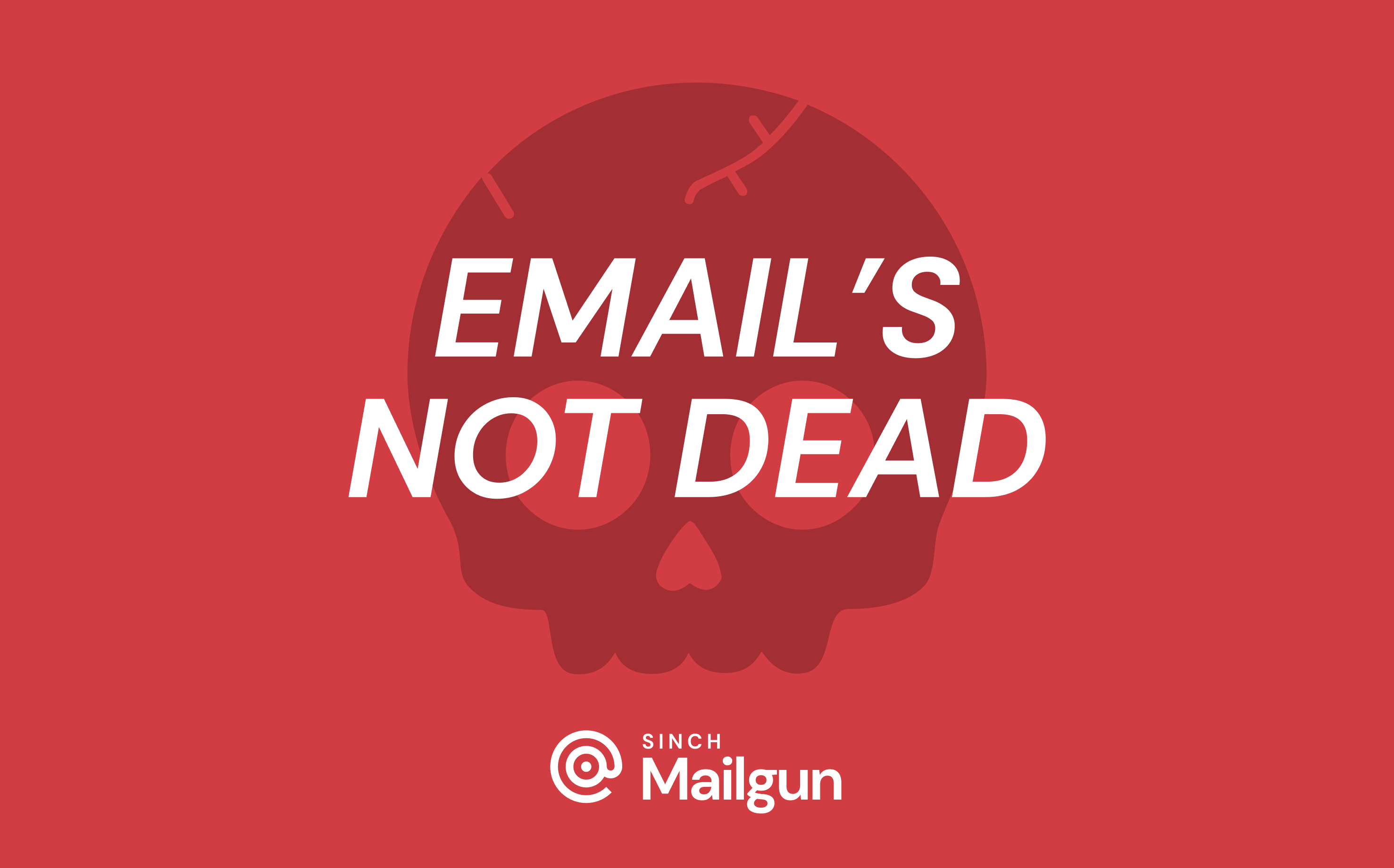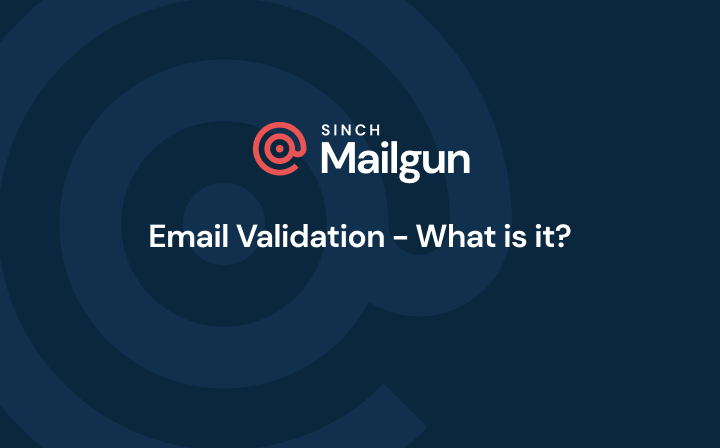Podcasts
Email changes in 2021
Email’s Not Dead: Season 3, Episode 2
Email changes in 2021
Email's Not Dead
About this episode:
With growth come changes. Some changes are good and some changes are bad. That's why Jonathan and Eric bring you a recap of what changed in the email landscape in 2021. From how email volumes are changing for businesses to how COVID-related email traffic has evolved in the last two years. Plug in your headphones and join us for this episode of Email’s Not Dead.
PUBLISHED ON
Meet your presenters

Jonathan Torres
Manager of the TAM team at Sinch Mailgun

Eric Trinidad
Technical Account Manager II at Sinch Mailgun
transcript
Email’s Not Dead – S3, E2: Email changes in 2021
Overview
00:01:43 - Let’s review 2021, shall we?
00:05:51 - Is the pandemic over yet?
00:00:05
Eric Trinidad: Welcome to Email's Not Dead my name is Eric and this is Jonathan.
00:00:08
Jonathan Torres: Hello.
00:00:09
Eric Trinidad: Hello. We're here back with you again this week? Next week? Whatever time this comes out, we're here to talk to you about all things email and things that we find interesting along the web. Web news, I guess.
00:00:22
Jonathan Torres: I think it's, though. Email stuff, right? We're still talking in the vein of deliverability and email and getting good email out into the world and the fact that email is still around, no matter how much we try to kill it I think. The theme of everything that we talk about, right?
00:00:34
Eric Trinidad: Yeah, yeah. So I mean, last week it was about privacy and how we're dealing with that and open rates. This week, just landscapes man. And I don't know if you know this, but it's kind of been something that's been around for a while. Not landscapes, of course. But like, things are changing, man. Like, I think a wise man once said, you know, in 2021, the waters are rising. And if you, you know, value your time, then you better go to get to swimming because the times they are a-changin. Bob Dylan said that I mean, he's alive...
00:01:03
Jonathan Torres: Well, those were his exact words, right?
00:01:04
Eric Trinidad: Word for word, you know? So he knew a lot about the email space. That's not something that a lot of people know about. You know.
00:01:10
Jonathan Torres: That's what exactly he was talking about. Yeah, that makes so much more sense now.
00:01:15
Eric Trinidad: Yeah, you need to go back and listen.
00:01:18
Jonathan Torres: Obviously wasn't paying enough attention the first time around.
00:01:21
Eric Trinidad: Yeah. You've got the right mindset, man.
00:01:26
Jonathan Torres: Thank you. Thank you for that.
00:01:27
Eric Trinidad: So landscapes with the email, like what's been going on, what's changing, what's happening, man? Now we're fresh kind of towards the tail end of the pandemic, hopefully. Fingers crossed. And you know, what's been going on this past year, what have you seen?
00:01:43
Jonathan Torres: So much, and we're going to go a little further than a year, really we can track a lot of events changing like a lot of things happening within the email space, so much of it started way before the pandemic started. Right? We look back at early 2020 and we can see things start to change from there into what it is now. And I think we've addressed some of that a little bit. We've had a chance to talk about some of that, but I think this time we're just going to do a couple of years and review more than anything else. And there is definitely some stuff even from further back. Let's jump into what exactly those were, or maybe just an idea of what those things were, right? I know there's a lot of it that's just things are out there now. So yeah, early on within that time, right there in early 2020, when things shifted, we definitely saw a lot of things go in the direction that we assumed that they would go right with things like, rideshare companies or, things that have a lot of in-person events. Those kind of companies definitely took a dip in the email and the email that they were sending in the monthly email sense that they do, especially the transactional type stuff that was, you know, really heavy during that time. And then everybody was indoors and shut in. And, you know, we had a whole bunch of mandates for people to stay away from other people. So it did create that whole event that happened in email as well, right, that we saw a change there. But at the same time as you saw that go down, you saw a lot of things go up, including online purchases where people had to go. No other option, right? But to go online, to get a lot of stuff and to create those purchases from there through that avenue. There was a lot happening, but there was also a lot of people who were staying away from purchases overall. So we saw a balance in there. The other big thing that we saw is schools started up taking in their email sense because schools got to get information out schools gotta put alerts out for schools that let the parents know what's going on. But then also they started utilizing the same systems to even do homework alerts and your classwork alerts and things like that where they hadn't previously done that before. And schools, I think, scrambled a little bit to kind of get up and running with that stuff and ended up using methods of notifications and things like that that hadn't really been used for those channels. So it did create an increase. So we saw all kinds of things right, like all kinds of things, upticks downticks, and really crazy balance of where the sends were coming from for a little while. Then as things started clearing up as things have gotten better, as you know, vaccines have come out, as mandates to stay away have ended. We have seen a shift in the reversal, but not completely. And I think that's that's one of the key things that we notice about things is when there's a trend, things happen, things change. It makes everybody pivot and learn and do things differently and in a different way. And sometimes that new and different thing is a good thing and in a good way to to do things any way for communication and new avenue for marketing. And it's just created a whole new landscape where, you know, schools way back in the day, when this started a huge uptick. But right before that, there was just basic notifications that were going out. And I feel that we're giving such a big mix of that now where it's definitely, you know, still higher than what it was before, because things are still being utilized in that fashion because parents like to get those notifications, they like to see what's going on. And the schools rightly so, started utilizing that notification stream and started doing things of that nature through those emails, which is awesome. That's a good thing to see. And when people adopt those things, it's great. I know one of the things that we were talking about a few moments ago in real life because I think this is definitely impacting us in real life, especially right now as we keep going through that and as things keep changing, there's a whole supply chain issue that's going on right now, and I wouldn't be surprised if somebody out there has not been impacted by the supply chain stuff that's been going on since the beginning of this thing and through to now. And you know, with what's going on in the world and that affects email, right? I know Thomas, our wonderful friend, producer of the podcast. He's kind of getting those emails where companies are saying, Hey, you know, Christmastime is around the corner. This is what's happening. This is what's out in the world right now. And I think previously that would have been just an email saying, Hey, here are specials, make sure Christmas season is coming up, you know, get what you need. And instead, it's a very stern warning of like, Hey, we might not have what you need later on because of the supply chain stuff that's going on. So just be aware. Get ready to purchase now and get ahead of those things. And it pivots the way that marketers have to think about those kind of things.
00:05:51
Eric Trinidad: It's not just the pandemic, but it's also ships trying to do a 180 in a shallow canal, forest fires, you know, raging rapids and weather conditions. It's all this stuff. And it's like really coming around right now. It's making it difficult for some companies to keep up and they've got to pivot. They've got to make those changes, like you said, you know, like restaurants, man. Huge change for them, right? Like going from like having reservations, everybody coming in to like, OK, we got to switch to delivery and take out, we're going to switch our whole parking lot into sonic drive-ins now, every single five star restaurant out there, so it's different.
00:06:32
Jonathan Torres: Now I know what you were doing during this whole time.
00:06:35
Eric Trinidad: Oh man. Like, I don't even know, I can't even tell you.
00:06:40
Jonathan Torres: Eating premium steak sitting in your car window.
00:06:42
Eric Trinidad: Yeah, it's just like going to Ruth's Chris or Morton's and just hanging out in the parking lot of a movie theater? Yeah, but other things too, people are staying more at home, right? I had ordered some security cameras now that I'm at home, I feel like I just need to make sure the properties still getting taken care of. And, you know, nobody's messing with our homes. You know, we're in a newer area, so we want to make sure that we step up security. But like the security cameras that have been on backorder for like over a year and a half so since we first started getting into the pandemic, I ordered these things because I knew, OK, make sure like these are a priority purchase, but still unavailable. But I still get notifications every two weeks, like, Hey, we haven't forgotten about you. This is still not available. Just giving you a heads up, just making you know, making you aware. But I think that also increases engagement, right? Like that helps with the reputation. You know, you keeping in contact with your clients and customers, because I know, I see when I see an email from them, I'm like, Boom, I need to click on it because I want to see if that stuff is ready so I could spend 300 bucks, you know?
00:07:51
Jonathan Torres: Yeah, you want to be on it. You want to be ready, you want to set and ready to go with that mouse, click one mouse, click away to get what you need. And there's definitely some things that I've wanted to purchase that are in the same boat maybe literally the same boat because I just can't get my hands on them. So you're dealing with security cameras. I'm trying to do things to have fun and still nothing. There is there's just all kinds of craziness going on out there. So it's just one of those things. It's a byproduct of real life events that are happening that just affect the way that email is being done. And I think you have to think of both things in the same vein, and you have to think both of both things at the same time and really consider that that is definitely a thing that happens. That real life can impact what we're doing as businesses and as email senders and as people who are in this industry. Hey, we need to quickly think about things and the way that they're going to pivot and pivot quickly. I know when you know, we've talked about this kind of stuff before the importance of ramp ups and warm ups and getting email to establish itself before we start doing things. And I know when this first started, it was such a huge shift and so quick for most industries and most email centers that there wasn't a whole lot of time to do that. And we did see some minor impacts from that where, you know, certain industries there are trying to pivot quickly, did things a little bit too rushed, and you have a lot of sands that just ended up failing because they weren't expecting that much traffic to go out or have that big of a change. And the other way around, right, like when it went down and the industries that were hit the hardest in their email sends going from, you know, a million a day to, you know, 100,000 a day or something crazy, we've seen those ridiculous swings where now they're, you know, things are starting to pick back up. The real world is opening up again, and they're having to now think about the strategy of warming those IPs back up right, warming up the domain again for high volume sending because it has not happened in the recent past. So it's you've got to think of both sides of it. And and I think that's that's one of the things that we want to make sure we're doing that. And I think starting to to pivot a little bit in the way that the ISP's themselves, right, the people that we're sending to the locations we're sending to also do things where they are trying to protect their users and using, you know, similar methods to what's been there before. But. Always reevaluating, relooking at things, making changes and updates to other platforms that can then impact what we're trying to do on our site as well. So, you know, warm ups are something that we've always talked about, something that we've always implemented and suggested the ISP industry, the whole side of the inbox side of things is really doing those kind of things also where they're looking at how much is coming in and what those rates are that of emails that are coming in and paying a lot more attention to that and not just warm up times and how something increases over the course of time. Combining that with the reputation, how much are they going to let through? But then if there's drastic changes after the fact that is something that they do consider and we see that happening, you know, if there's a dip for a little while and then a rapid increase again, that can definitely impact what you're doing and what what you're sending. And it's something that we see more and more from the different locations we're sending to that they are paying attention to that. They have to pay attention to that kind of stuff and we have to adjust what we're doing. So it's one of those things from our side. We say, Hey, make sure you're paying attention to those kind of things. Future plan. Make considerations before you start doing those kind of changes when possible, understanding that real life events happen and it can prevent you from doing that. But if you can, if you can help it, if you can plan, if you can just be prepared and do things way before it starts happening, that's what we want to do and that's what we want to pay attention to. So be the most proactive that you can be and understanding that not everything can be 100 percent proactive.
00:11:23
Eric Trinidad: Yeah, I mean, luck favors the prepared in all these situations understanding your clientele, knowing that they're human to right and understanding that, maybe they don't want to get 50,000 reminders of this notification that you're going to send out because you forgot that, oh yeah, we have a sale that's going on tomorrow. Everybody must know every hour on the hour, but warming up to them, telling them, Hey, this is coming up. We want you to be involved here. Some delighters, here's something. Try to get them to engage, you know? Well, what would you click on? You know what, Jonathan? What entices you to click on a message?
00:11:56
Jonathan Torres: Free food.
00:11:59
Eric Trinidad: We can't throw free in there, man. You can't throw free.
00:12:05
Jonathan Torres: Just gotta be careful on how you presenting it right? Your audience, you got to talk to your audience directly.
00:12:09
Eric Trinidad: Like tacos, Oh, really? In my area?
00:12:14
Jonathan Torres: I know. I can understand, and I like your idea of preparedness. It just really reminds me of that zombie knife that you keep in your car, just all kind of preparedness. OK, I'm sorry, there is no zombie knife in Eric's car. Let's pay attention to what those industry changes are. AMP is a thing that's that's been around for a couple of years, and I feel like it's gone through a few quick iterations on how it's being done. So that's something that is a very recent change. In addition to the things that are being sent out with emails that have changed the landscape a little bit and creates that engagement, creates the ability for a sender to put in a piece of something for users to interact with and interact with, right? A tool, an extra tool that senders can use within their toolbox to do the correct thing within that email, right? And not that everybody is going to say, I'm not. I'm not saying that everybody should 100 percent go and do amp or find a way to get AMP into their message. But this is something that you can utilize. It's another thing that's out there, right? And that's a change that we've seen within the past three years now. I think it's about the time frame that we've seen that. So relative to how long email has been around, which is quite a while now, you know, it's it's a fairly new change. One of those other changes on making sure that you're you're seeing that you have a reputation piece that people can tie into this being your company and that's BIMI. So BIMI is awesome. We've talked about it on the podcast before now, but again, within the last three years it's been a new change, a new tool for senders to utilize to help them identify with or be identified by their recipients, right? It's a matter of me when I send out, I want people to know I'm sending it out, and that's my message and this is my brand and who we are. So one possible use things like that and that directly ties into DMARC, which is another subject we've talked about. And DMARC is one of those ones that's been a very slow burn because it's the one that's that's been around for quite a while. But I know we constantly, constantly, constantly hear more rumors, more protocols or more tools that are going to be coming out like BIMI that are going to require DMARC to be set up. So even though it's been a thing for a while, we know that the whole internet doesn't implement it. There's quite a few senders that don't have anything set up for DMARC at all, which is a little sad, a little disheartening, just because it is one of those things that will protect you and you're sending domain and IP by saying, these are the messages that are actually coming from me and everything else that says it's me, it's not actually me should be a fairly simple set up. All I say simple is relatively simple, like depending on, you know, what level you are technical wise, but there's definitely things that can that are out there to help you set up DMARC, which is one of the people that we've talked to. And we will talk to you again over at, you know, places like Dmarcian who have the best toolset to be able to implement something like that. And that's that's something that if more tools come out. Something to say, like a BIMI or that's going to identify you or that is going to be a bonus, you know? But we never know something like AMP could change rapidly to say like, Hey, you need to do more authentication for the emails that are being sent with the stuff and now you need DMARC to do that as well. I know, there's always been those industry talks of like ISP's possibly blocking all traffic to you for anybody who isn't using DMARC as an authentication piece. And, you know, I think it's difficult for an ISP to implement something like that. It's difficult for a recipient server to implement something that way. But I think eventually the landscape will change enough that, you know, those things will be possible. And as more people adopt it, that's even a good thing because it will help create that extra level of protection because there is things like phishing and spoofing of messages that are happening out there every day. So the more protected we can be, the better. And we just need to be on the lookout, right? And all that has been rumors so far about the further adoption of it, but it's only a rumor until it actually happens. And at some point when it does happen, then you want to be prepared rather than unprepared. Zombie knife or not.
00:16:03
Eric Trinidad: Hey, man, you never know when that's going to happen, and we got pretty damn close the last two years. I'm going to be honest, right? Like, I was ready.
00:16:13
Jonathan Torres: If anybody was prepared, it was you.
00:16:14
Eric Trinidad: Yeah, we're going to be having Ash from Dmarcian out on the podcast. We're coming up, you know, on a next episode with them. Super excited to have them back and do a little bit more deep dive conversation with them. So yeah, man, that's exciting.
00:16:33
Jonathan Torres: I don't know. One of the other things we want to talk about, too, is when we start looking at the landscape. And I just mentioned ISP's doing changes and things like that. One of those things just that was big news. I think industry wise, and this happens every once in a while. I mean, it happens with different companies for different reasons. But I think when you have the ones that are the big three that have been the big three for such a long time, right, like we've seen the big three go from, you know, Yahoo, AOL, Gmail and Microsoft to now Yahoo and AOL combining forces for a little while with Verizon. And then now like, that's still one of the big three is still one of the big ones that people send email to and where I may host my personal mailbox. But it's now changed hands, you know, so there could be more changes as things develop and that ruleset changes or those hands change and people get, in place or development happens or those kind of things progress within the platform. Something like this is big enough news that we have to pay attention to because the last time this happened, when AOL and Yahoo combined forces under Verizon, we saw that change and that impacted a lot of people because Yahoo was still a big enough recipient of emails that we had to pivot and they were one of the ones that we knew, OK, you know, SPF is got to be a thing 100 percent, and now that's kind of gone away because they've adopted the entire Yahoo platform for the recipient servers. So, you know, that was that was a big pivot. And, you know, having to think about reputation in the way that those points are scored and how those things are happening behind the scenes. And now there's, you know, a change that's happening. We don't know what that's going to mean or equate to completely, but we know with the change that what landscapes are constantly changing, you know, times are always changing. And this is one of those things where we just need to be aware we need to pay attention, but not that we should be worried about it or completely in this extreme like, Oh my god, something's going to burn to the ground. But just knowing that there's change happening around us and being ready to pivot and being prepared with all the right things, the right tools and making sure we're talking to people about this and listening to the industry itself too, which is one of the things we do a lot on our end.
00:18:33
Eric Trinidad: Have we noticed anything specific, as far as now that they're breaking away and kind of divvying up that pie from Yahoo and AOL and Verizon? I haven't seen any big changes yet as far as how their interactions are as far as bounces and stuff like that. Have you noticed anything yet? It's still too early?
00:18:56
Jonathan Torres: It's still early. And if they're planning changes, they haven't announced any of that yet. There was things that have changed during that timeframe where it was under the big house, I guess, if you will. And ever since it's gone over to, you know, changed hands with Apollo should be the new company, the new parent company for that, not not a whole lot, not a whole lot of news yet. And I think it's just all of us are kind of just looking, paying attention and being aware and just seeing if there is anything that just happened to change or evolve out of that.
00:19:21
Eric Trinidad: All right. Well, we're going to keep looking. We'll keep an eye out. Of course, you know, this year not. I'm pretty sure there's still surprises for us before the year is out, you know? And you know, let's just try not to be caught off guard.
00:19:33
Jonathan Torres: We're close to the end of the year, right?
00:19:34
Eric Trinidad: So no fingers crossed we're almost there. We're preparing now, right preparing now for your sins. You know, holiday season is upon us. It's the weather changed yesterday. I've started playing "All I want for Christmas is you". So it's on. It's on. You should be prepping now, sending more now, or at least warming up to your newest volumes now.
00:19:54
Jonathan Torres: Yeah, yeah, definitely. Yeah, easily one of the things that we can say and I know when we start looking at that stuff and recent things that aren't necessarily changes within, the way that recipient servers are working or, a live event that have impacted. This is a little bit on that side, a little bit more platform wise. You know, Apple released the privacy thing we just talked about that last episode. So that been a change that's happening over the past couple of years. One of the things that's been added is the dark mode features, right? So people are using devices, all their devices now in dark mode and light mode. There's those of us who use dark mode all the time, and I'm gonna call myself out on that.
00:20:32
Eric Trinidad: When I was on third shift all I wanted was dark mode. And then we had like our tools, get updated to dark mode. It was amazing, and then I went to the light. Then I came back and everything is still in dark mode.
00:20:43
Jonathan Torres: But then there's the users who do utilize it in light mode, right? Like it's and or the users that have the auto changing the, you know, daytime light mode, nighttime dark mode. And it's one of those things that's out there. So paying attention to how you format your email, what you're doing within your email to adjust that and make it look good in both in both ways, because there's a bunch of things within that HTML code you can put in now to pay attention to that stuff and to say, Hey, it's in dark mode displayed this way. It's in light mode displayed this way and, you know, making sure you're doing that kind of stuff, adjusting to that. And then with that, because that color change is so drastic and white backgrounds compared to black backgrounds and different color text. On top of that, the accessibility space has really become a thing that people are needing to pay attention to. And it's always been a thing that I think people have had to pay attention to that should have been aware. But I think it's even more apparent and more top of mind, I guess, is really what I'm trying to say more that people are really, really thinking of this. And really, because those communities have said, Hey, we're here too just because you want to make this a dark mode and working in dark mode and be real nice. That doesn't mean we can easily see these things and we're easily able to adjust as well. So, you know, making sure that that you're doing that, paying attention to what those changes mean in both directions is one of those things. And again, that's really just the user perspective user thing. And we're not necessarily talking about the way that filtering work and the way that the warm ups work and IPs and reputation, it's more of user experience, right? Like being respectful to your users, your recipients and making things nice for them to look good for them. But then at the same time, also have a really good readability no matter who they are.
00:22:24
Eric Trinidad: Yeah, doing A/B testing, seeing which templates or which campaigns work better than others, you know, maybe this color works better in dark mode, and this one looks better in night mode. Just paying attention to those metrics, not just looking at opens, you gotta look at everything down the funnel as well.
00:22:39
Jonathan Torres: Yeah, that's one of the things I think we're going to talk about in a future episode. You know, a little bit more about this kind of stuff, right? The formatting of the messages and stuff like that. So I know we're pitching future episodes a lot in this episode, but I think it's stuff that we're we're excited about. And as the industry changes, we like seeing those changes. Maybe some of them we don't like too much, but there's there are things we would definitely have to deal with and learn about and adjust to on our side, too. So, you know, it's at the very least we're paying attention to it. And even though it's not the greatest change, sometimes it's a necessary change almost every time. And yeah, we need to adjust, stay focused, stay looking at those things and pivot when we need to.
00:23:14
Eric Trinidad: Yeah. So we're putting out a lot of ideas on what we think this next season is going to look like and how it's going to be. If you have feedback for us and want us to know what you like to listen to, please let us know. Hit us up on all the platforms. Make Thomas respond to you directly.
00:23:32
Jonathan Torres: Thomas is a good guy. Great hair too just throw that out there because I know this is an audio format so people don't know. They won't know. But that hair is awesome.
00:23:41
Eric Trinidad: Just the word Adonis comes to mind, you know, just nicely here, individual. Both of y'all have really nice here, by the way. Long locks, not myself.
00:23:56
Jonathan Torres: It's a little bit of jealousy. It's OK. I understand.
00:23:58
Eric Trinidad: Yeah, it's OK. Still, that doesn't mean I feel so yeah.
00:24:02
Jonathan Torres: No, that doesn't exist.
00:24:04
Eric Trinidad: But yeah, I mean, that doesn't exist. You're right. You're right. Well, you know, that'll be it for today. Keep in touch with us and let us know what you think. Give us your feedback. We are going to have more guests coming up this year, so we're super excited about what this season has to offer. Hope you're excited here too.
00:24:22
Jonathan Torres: That's it. That is all.
00:24:24
Eric Trinidad: Right on. Thanks again, guys. Have a good one.



